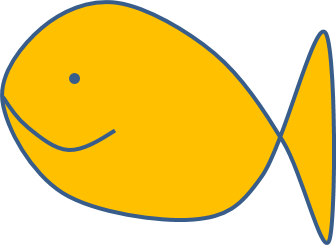EATFISH is a truly multidisciplinary research project aimed at integrating the biological, technical, socio-economic and governance aspects needed for sustainable and profitable aquaculture. Only when these aspects are integrated, competitive aquaculture in a changing seascape will be feasible in Europe. Aquaculture is the fastest growing food sector since the 1970s and its most important purpose is to provide healthy and safe food adapted to consumer preferences. At the same time there are fundamental concerns about the ways we farm and transport food across the world, which are related to negative environmental impacts. Hence, sustainable aquaculture has been identified as the “greatest and most feasible” way to obtain adequate seafood for human consumption and achieve the UN Sustainable Development Goals 2, 4, 13 and 14 on food security, quality education, climate action and use of the oceans, seas and marine resources for sustainable development.
We propose cutting-edge research related to the biology and technical aspects of aquaculture and have a similarly large effort directed towards socio-economic and governance aspects of aquaculture to:
- Optimise resource economy in European aquaculture, such that it contributes to a circular bioeconomy
- Ensure animal health and welfare
- Develop novel aquaculture products targeted to specific market segments
- Refine aquaculture governance to facilitate sustainable development of the sector
- Enhance the skills and competences of future aquaculture professionals
EATFISH is a Marie Skłodowska–Curie Innovative Training Network funded by the EU (project number 956697)

Seaweed, lumpfish and sea urchin will be assessed for their performance in poly-culture in Bantry Bay, SW Ireland, with a particular focus on the culture of echinoderms. Testing criteria will include environmental parameters, growth, food conversion ratio and health and welfare of co-cultured species. The impact of microbial processes in IMTA performance will be assessed in collaboration with Wageningen University. The performance of each system will be compared with previous mono-culture data. The IMTA systems will be evaluated to determine the practicality and applicability of the new infrastructure and species mix chosen. Also, the effect of each of the systems on the environment, the quality and production of the cultured organisms and the time/effort and cost involved will be assessed and compared with the unmodified situation. The successful student will have a background in marine biology/aquaculture and work well in a multidisciplinary team. They should be confident in both analytical lab and running field experiments. Hatchery experience (echinoderm or other shellfish or seaweed) and experience in productivity measurements will be an advantage. The PhD student will be based at BMRS and registered for their PhD at University College Cork. Two secondments are also planned to Wageningen University and the University of Stirling.
Update February 2023
Amalia Krupandan, a Ph.D. student based at the University of Stirling, Scotland, is currently on secondment at BMRS as part of the EATFISH MSCA ITN. Her project will involve developing decision support tools for polyculture management and regulation, with one of her case studies being a salmon-kelp Integrated Multitrophic Aquaculture site in Bantry Bay. During her time at BMRS, Amalia will be collecting water samples and seaweed tissue which will be analysed and used to inform her decision support tools.









